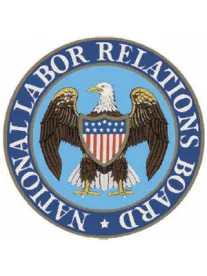The National Labor Relations Board (the “Board” or “NLRB”) continues to focus on issues concerning the rights of undocumented workers whose rights under the National Labor Relations Act (the “Act”) are interfered with for engaging in union activity and other forms of protected, concerted activity covered by the Act.
In its March 27, 2015, Supplemental Decision in Mezenos Maven Bakery, Inc., 362 NLRB No. 41 (2015), the Board, in response to a remand from the United States Court of Appeals for the Second Circuit, addressed the issue of whether the Board “should order the conditional reinstatement of employees who, at the time they were unlawfully discharged by [their employer], lacked proper documentation to work in the United States.” Four years earlier, the Board had found that under the Supreme Court’s decision in Hoffman Plastic Compounds, Inc. v. NLRB 535 U.S. 137 (2002), it was precluded from awarding the employees back pay “because they were undocumented workers, even though it was the Respondent and not the employees who had violated the Immigration Reform and Control Act (IRCA).”
While the Second Circuit affirmed the Board’s conclusion that the employees were not entitled to back pay because of their status, it asked the Board to answer the question of whether they were entitled to offers of conditional reinstatement, that is “offers of reinstatement conditioned upon their presentation to Mezenos of IRCA-compliant documentation to show that they were lawfully present in, and authorized to work in the United States” (362 NLRB No. 41, at page 2). The Board concluded, in addressing the question of conditional reinstatement, that Hoffman “did not cast doubt on the use of conditional reinstatement in cases involving undocumented discriminatees,” and held that “conditional reinstatement is important in the immigration context in order to provide a meaningful remedy for the Respondent’s unfair labor practices.” In ordering conditional reinstatement, the Board stated that it would not decide in this case what constitutes a reasonable period for the discriminatees to meet the condition of reinstatement, noting “what constitutes a reasonable period . . . as that determination ‘will depend essentially on the situation in which the employee finds himself.’”
Several weeks earlier, on February 27, 2015, NLRB General Counsel Richard F. Griffin, Jr., issued General Counsel Memo 15-03, Updated Procedures in Addressing Immigration Status Issues that Arise During ULP Proceedings. The Memo reiterates the fact that the Act applies to and protects employees, including undocumented aliens, and that even in those cases where a discriminatee may not be eligible to receive back pay or unconditional reinstatement, the Board will continue to pursue such cases. The Memo, which is intended to provide guidance to the Board’s Regional Offices, also describes the NLRB’s structures for interagency cooperation with the Departments of Justice and Homeland Security and the Board’s Memorandum of Understanding with the Department of Justice’s Office of Special Counsel for Immigration-Related Unfair Employment Practices.
As the Mezenos Maven Bakery decision and GC Memo 15-03 clearly demonstrate, the NLRB is continuing to vigorously pursue cases involving unfair labor practices in which the alleged discriminatees are undocumented workers.




 />i
/>i

